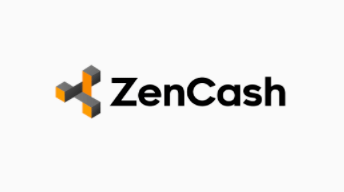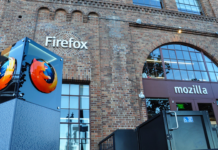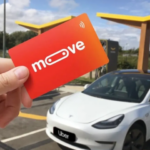Interview with Rolf Versluis, Jake Tarren ZenCash developers and Alexander Zabuga a volunteer who is in love with ZenCash!
How did ZEN start?
ZEN is a fork of ZLC. Meaning everyone who had ZLC got ZEN too. It was announced well in advance, fork itself happened very peacefully with support from both sides.
In order to understand why ZEN was forked from ZLC, you have to understand the history of ZLC. ZLC is a ZEC (Zcash) clone with one simple change – there is no 20% developer/investor cut. In fact all mining rewards to go miners. While this is a great anarchistic dream it caused some issues – if someone wanted to work/improve ZLC he had to do it for free. And over the year there’s been a lot of ideas how to improve it.
So ZEN was forked in order to achieve decentralized governance and implement all the ideas people have and will have.
Was there a premine and if so how big was it?
- None!
- There are currently ~2 220 000 ZEN with ~216 000 being mined every month.
- ZEN forked from ZLC with ~1 500 000 coins in existence.
- Total supply is the same as in BTC, 21 million.
- ZEN uses equihash algo, so it’s mined primarily with GPU and is ASIC-resistant.
How much does a Secure Nodecost?
Nodes cost 42 ZEN = ~0.07 BTC = ~ 300 USD as of today.
(Zencash secure node is a similar concept to a masternode)
Why are Secure Nodes cheap compared to other Masternodes?
Point of secure nodes is not to lock ZEN out of circulation. We do not want to inflate price. We also want it to be accessible and affordable to everyone willing help the network. We also have to balance it out so there’s incentive and monetary reward for people to operate them.
What are the requirements to run a Secure Node?
Modern CPU, 4 GB ram, hard drive to store blockchain.
Static IP, SSL certificate, 42 ZEN.
It’s possible to setup a securenode behind TOR.
How come one needs only 42 zen to create a Secure Node and only 3.5% goes to the Secure Node operators?
There are few reasons for this:
- We don’t want to lock circulating coins into secure nodes thus causing an artificial price inflation. At current 42 ZEN it would take 5000 secure nodes to lock in 10% of total supply.
- We want secure nodes to be affordable to whoever wants to run one. For example Dash masternodes cost about 350 000 USD, making them unaffordable to most. At the same time nothing stops big investors from running multiple secure nodes.
- Overall ZEN views secure nodes as essential part of its network. They do hard work: ensuring transactions and communications are secure. And this work should be rewarded. So we’re trying to strike a balance between all of those things. Keep it accessible to new people, avoid centralisation and/or making a big “caste” of people who could act as bad agents, ensure that it is still profitable and people running nodes are rewarded.
- Economically speaking it doesn’t really matter, market and competition will decide. ZEN’s ROI will be highest at release, slowly decreasing and catching up with market average of about 8% ROI yearly. If we were to increase reward, it would result in more nodes being present, and if we were to increase 42 ZEN requirement it would make ZEN less accessible
Can multiple Secure Nodesbe operated from the same IP?
No, each node needs a unique static IP. It is possible to run multiple nodes on one machine using VMs. Most people so far are renting VPS to host nodes.
What are the returns on a ZenCash Secure Node?
3.5% of all mined ZEN are redirected to a secure node reward.
That results into 7560 ZEN per month.
If there are 1000 secure nodes, each gets 7.560 ZEN per month.
If there are 2000 secure nodes, each gets 3.780 ZEN per month.
Etc.
Secure Node Overview Explanation and Video
Secure Node Design Discussion
Example of Building Most of Secure Node
How many ZEN are there?
2 150 000
What is the difference between ZEN, Zcash, Zcoin?
Conceptually ZEN is about private communications, transactions, and publishing.
It improves upon zk-snarks anonymity by encrypting all communications within the network using certificates.
This goes in sharp contrast with other anonymity currencies where few of the coins that do protect their network do so by using TOR/I2P which while being encrypted is still easily detectable as TOR/I2P traffic. For example, China’s Firewall blocks TOR traffic by default, people are forced to access TOR by using bridges.
Zencash secure nodes can run over TOR as well.
So this is how ZEN is different to other anonymity coins in terms of anonymity itself.
The biggest difference is probably governance. ZEN aims to be self-sufficient and user-controlled. There’s a treasury fund and how that treasury fund is spent will be decided by users with voting. To get a general idea think Dash.
The ZenCash nodes would, at most, operate as any other IPFS peer. They would not host any complete and unencrypted content, and would not be identifiable as doing such.
How many Secure Nodes are there online at this time? What was the highest number so far, what was the lowest number?
Secure nodes are in testing (alpha phase) with beta to be announced soon. There are currently 126 secure nodes in total. This is not an indication as to how many secure nodes will be there on release. It’s safe to assume we will have more nodes as testing is done on a volunteer basis and there’s no monetary incentive, unlike the release.
How many developers are working on this project?
ZEN is a new project and is constantly expanding. You can get the rough idea here https://zensystem.io/team/ . As far as I know, there are at least 3 more developers in China and some in Portugal.
What have been the major milestones so far?
This one is hard to answer since I don’t really know what you consider as “Major”.
ZEN is currently reaching out to different entities to get out there and be used!
Some of the latest partnerships/integrations:
- StormX
- Bisq (will be added in the next update)
- bitCash
- Follow us on our bi-weekly updates https://youtu.be/kWF2YHHRhA4
For More information please Visit:
ZenCash Blog
ZenCash on Bitcointalk
ZenCash YouTube Channel
ZenCash Reddit
ZenCash Facebook Page
ZenCash Blog on Medium
We thank Rolf Versluis, Jake Tarren and Alexander Zabuga for the interview.












